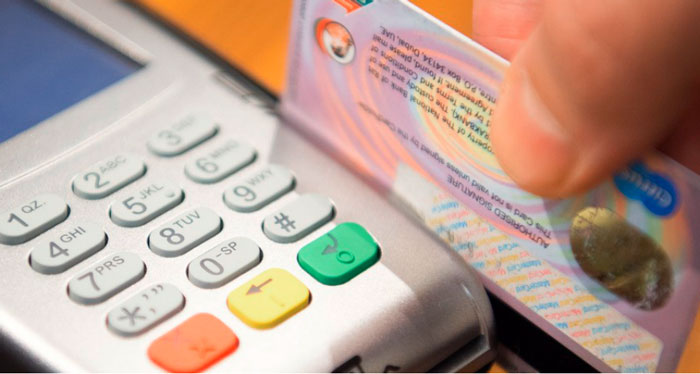Many members of Generation Z and millennials are likely to exploit the ease of credit cards to donate to political campaigns in 2020. Using a credit card to present is convenient. Still, supporters should remember that a portion of their payment will go toward credit card processing fees rather than the candidate they support.
Since the beginning of the 2008 election cycle, national political campaigns have paid more than $220 million to credit card processing corporations like American Express and PayPal, according to an analysis of data from the Federal Election Commission conducted by Newsy.
What are the costs associated with making a political contribution via a credit card?

Melanie Sloan, former executive director of the watchdog group Citizens for Responsibility and Ethics in Washington, tells CNBC Select that campaigns, like all other businesses that accept credit cards, apply transaction fees that reduce the actual contribution amount.
When they accept credit cards, a fee is charged to political candidates just as it is to grocery stores and retailers. A portion of any credit card payment made to a political campaign or candidate covers the processing charge's cost. In most cases, a transaction fee will also be assessed.
If a website claims to take donations of any size, including a single dollar, remember that the expenses associated with processing even the smallest donations can quickly eat away at the amount you donate. The fixed processing and per-transaction costs will take a giant bite out of smaller gifts, leaving less for the candidate or campaign. While it's true that money is tight, not all donations are allocated as intended.
Consider making one significant gift instead of setting up smaller ones regularly to cut costs and maximize the amount directly to campaigns or candidates before committing to a regular giving schedule (and reading the fine print first).
Who is responsible for the associated fees when a credit card is used?

It is common practice for credit card processors to pass these costs to the campaign, although this is only sometimes the case. Sometimes you'll be the one to foot the bill. With Crowdpac, donors cover the 2.9% + $.30 per transaction in credit card fees, making the crowdfunding platform ideal for candidates seeking grassroots support. While the transaction fees charged by various vendors and platforms for political contributions can vary widely, there is a baseline amount to plan for.
Better for political contributions
Safety should be a primary concern when deciding how to make a financial contribution. If you're concerned about identity theft or fraud, a credit card is preferable to a debit card. The most crucial aspect of credit cards is the ability to monitor bills frequently and dispute charges during the grace period to avoid paying for unauthorized purchases.
Credit card processing fees are one of many things businesses have to worry about when accepting payments online. E-checks (sometimes called ACH or EFT) are another standard payment option. Unfortunately, electronic checks require disclosing sensitive information, including your bank's routing and account numbers.
Even though it's less convenient than using a credit card online, sending a check in the mail removes any anxiety you could have about your financial data being stolen. When asked about the cost of processing, Zucker says that reviews are still expensive due to the time it takes to process them manually but that the contributors will not be responsible for footing the bill.
The Federal Election Commission (FEC) discloses the identities of all donors who contribute more than $200 in a given election cycle.
What precautions should I take when making a credit card donation?
Just like with any other financial transaction, there are several precautions you can take to keep your credit card information safe when contributing to a political campaign online.
Donating when you're in a hurry isn't the finest practice. Before donating, you should check the website's privacy policy and learn who has access to your information. Data security attorney Julia Jacobson of Boston tells CNBC Select that the absence of such a policy should raise red flags.
It's best to double-check and then triple-check who the candidate has designated to receive the contribution. Perform some exploratory digging. Refer to the specified contact information, such as a phone number, as suggested by Jacobson. Check out the payment gateway. If you can, always use a reputable service like PayPal.

How to obtain a rewards card even with poor credit

Difference Between Standard Deduction and Itemized

Top 10 Factors to Determine Auto Insurance Rates

VA Renovation Loan: The Home Improvement Loan For Veterans

What Is The State-by-State Average Credit Score

Managing Bad Debt Expense for Financial Success

Explain Loan Servicing?

A Guide About What Is a Credit Card Issuer?

What Is the Annual Equivalent Rate (AER)?

The Stable Value Fund: What Is It

Smart Money Podcast
